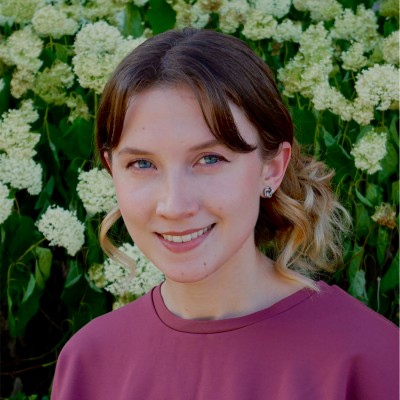Takeaway
My experience as a potter is an asset in my medical career. Skills honed through art—observation and empathy—are among those most needed in patient care.

Passion in the medical profession | April 8, 2024 | 2 min read
By Daniela Krahe, medical student, Johns Hopkins Medicine
A birthday call
At 12:03 a.m. on my 20th birthday, the piercing tones of a dispatch call jolted me awake. “Crew 519 is en route to a cardiac arrest, estimated arrival time 14 minutes,” I relayed to the county dispatcher.
Loss and comfort
By 12:30 a.m., our efforts to revive the patient were unsuccessful. With a heavy heart, my paramedic partner asked me to inform the girlfriend. Hesitantly, I entered the waiting room, her eyes reflecting the impending news. Instinctively, I reached for her hand. “Your partner didn’t make it,” I said gently.
Final transport
At 12:50 a.m., we loaded the patient for transport to the funeral home. Even in death, he remained our patient. We wanted to ensure his dignity until the final goodbye.
A shift in focus
Three years later, on my birthday, I found myself at a pottery studio, hands molding clay at the wheel. A wave of reflection washed over me. These same hands that once held someone through death were now creating a simple bowl.
Tears and transformation
Tears streamed down my face, mixing with the water keeping the clay moist. In the fall, I would begin medical school. Although doubts flickered, “Did I make the right choice?” The answer was a resounding yes.
Lessons learned
Leaving behind my EMT uniform for a white coat didn’t erase the value of my artist’s apron. Art fosters self-acceptance and a deeper appreciation for our capabilities. It provided a necessary counterpoint to the emotional toll of witnessing illness and death. Through creation and comfort, I’ve gleaned valuable insights:
Observation: Approach patient care with the attentiveness of an art museum visitor. Be observant of those who might need additional support.
Grace under pressure: Shaping lives is a daunting responsibility. Allow yourself room for error. Humanity takes time to cultivate.
Celebrating life: Pursue passions that bring joy, regardless of your career path and promote well-being.
Inseparable paths
My medical training underscores the inherent connection between art and medicine. Both require a delicate balance of calculation, focus, and compassion. They share the raw territory of vulnerability, devastation, and love. In my life, and hopefully in the lives of others, these disciplines are not mutually exclusive, but rather interconnected and profoundly enriching
This piece expresses the views solely of the author. It does not necessarily represent the views of any organization, including Johns Hopkins Medicine.

